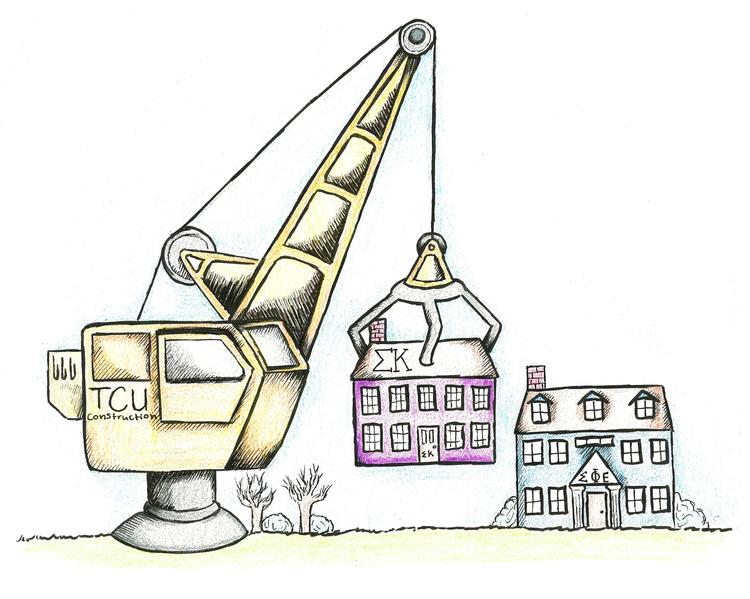The university will continue discussions this semester with the Board of Trustees about building new Greek houses and either renovating or tearing down the old ones, Craig Allen, director of Housing & Residence Life, said.
Currently, Housing & Residence Life and Fraternity and Sorority Life is in communication with the Board of Trustees about getting approval for plans and the cost for the housing.
Allen said the cost of the housing is unknown at this point.
“My hope is that one day, it’ll be hard to live in your chapter house because it is such a desirable place to live,” Allen said.
The project would probably roughly take around three to five years to complete, Allen said. Ideas for the new Greek area include some type of commons area and a possible dining area.
Alyssa Dolny, a member of Kappa Alpha Theta, said she thinks the university needs the new Greek housing.
“The Greek housing right now is really old,” she said. “My mom was in a sorority here 35 years ago, and she had the same housing I had.”
Dolny said she would like to see bigger bedrooms and updated kitchens with nicer appliances. She thought the amenities currently located in Worth Hills were out of date compared to the Campus Commons, she said.
She said she would also like to see a dining facility within the new area.
“I think it is best to have an eating area there because it is kind of a far walk, and when you are getting up early or out late at night and you need to go eat, it is easier to have an eating facility nearby,” Dolny said.
Allen said the area where Worth Hills is currently located is being considered for the housing. However, Allen said there would probably not be stand-alone houses for each fraternity and sorority, because of a lack of space.
He added the houses would probably be townhouse styled buildings, or large buildings that can be broken up into units.
Allen and others traveled to universities around the country looking for different ideas for the new housing, he said. He felt that the design of Auburn University was a good model to look at as an example.
“I think what we saw at Auburn University is probably one of the newest and nicest models giving us [the] density of housing that we need and also having a really nice kind of inviting village atmosphere to it,” Allen said.
Although specific exterior and interior designs of the building have not been made, Allen believed each chapter would be able to personalize its house, he said. However, he added there would not be much flexibility in what type of bedrooms the houses would have as far as suite style, apartment style, or single bedrooms.
“I think that is a very attractive option because it allows us to have a good amount of density, meaning a lot of people in one area, but it also allows us to give chapters their own identity,” Allen said.
Shannon Sumerlin, director of Fraternity and Sorority Life, said the university wanted to move the housing closer to the main campus.
She added that some multicultural organizations as well as upperclass&-housing would also be included in the area.
Allen said the university has also planned to leave enough room for other sororities and fraternities that could be added in the future.
“Whatever we are building, we are going to want to have flexibility to grow our fraternity and sorority population,” he said.

